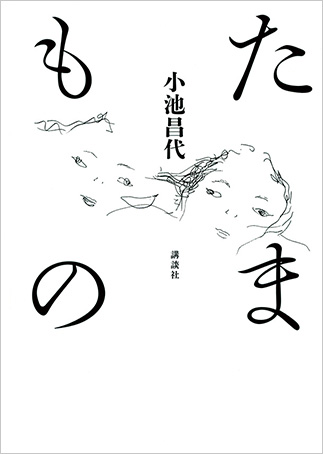
FAMILY
Tamamono
[Godsend]
Kōdansha, 2014. 192 pp. ¥1,700. ISBN 978-4-06-218969-9.
Also published in: n/a
One day, when the narrator was in her early forties, an old childhood friend and former lover appeared on her doorstep with a baby in his arms. He begged her to take care of the baby, whose mother had been killed in a traffic accident. He promised to come back to collect the child one day. Ten years later, the woman looks back over the time she has spent bringing up the baby boy alone. When responsibility for a fragile life is suddenly thrust upon a person one day, what can that person do but cherish that life?
This simple truth about child-rearing is presented in unshakable terms. The fact that there is no blood relationship between the woman and her son only brings the nobility of the connection between mother and child into clearer focus. The overwhelming feelings associated with treasured children are one of the oldest themes of Japanese literature, as seen in the verse “there is no jewel more precious than a child” from the Man’yōshū collection of fourth- to eighth-century poetry.
The novel also depicts the fragility and loneliness of this maternal relationship. The awareness that her child will one day be taken from her makes the sight of her healthy boy even more precious. The author, also known as a poet, captures in lively prose the deep emotions that can come from living with a child. As Japanese society struggles with the consequences of a dwindling birthrate, this book serves as a timely reminder of the special joy that children can bring. (NK)
This simple truth about child-rearing is presented in unshakable terms. The fact that there is no blood relationship between the woman and her son only brings the nobility of the connection between mother and child into clearer focus. The overwhelming feelings associated with treasured children are one of the oldest themes of Japanese literature, as seen in the verse “there is no jewel more precious than a child” from the Man’yōshū collection of fourth- to eighth-century poetry.
The novel also depicts the fragility and loneliness of this maternal relationship. The awareness that her child will one day be taken from her makes the sight of her healthy boy even more precious. The author, also known as a poet, captures in lively prose the deep emotions that can come from living with a child. As Japanese society struggles with the consequences of a dwindling birthrate, this book serves as a timely reminder of the special joy that children can bring. (NK)

Translation rights inquiries
Kōdansha Ltd.
(attn. Kitaoka Morio, International Rights Dept.)
2-12-21 Otowa, Bunkyō-ku, Tokyo
112-8001
Tel.: +81-3-5395-4112
Fax: +81-3-3942-7204
Email: m-kitaoka@kodansha.co.jp
(When sending an e-mail, please enter a half-width character "@" instead of a full-width character "@.")

